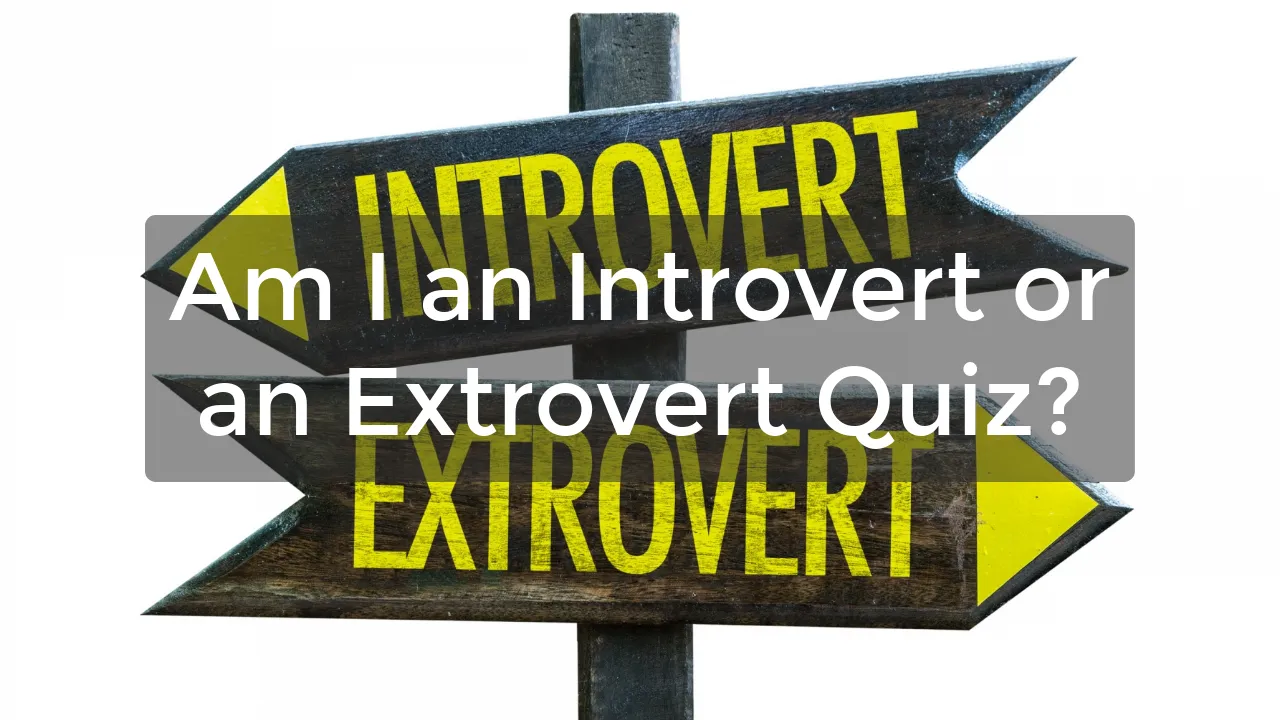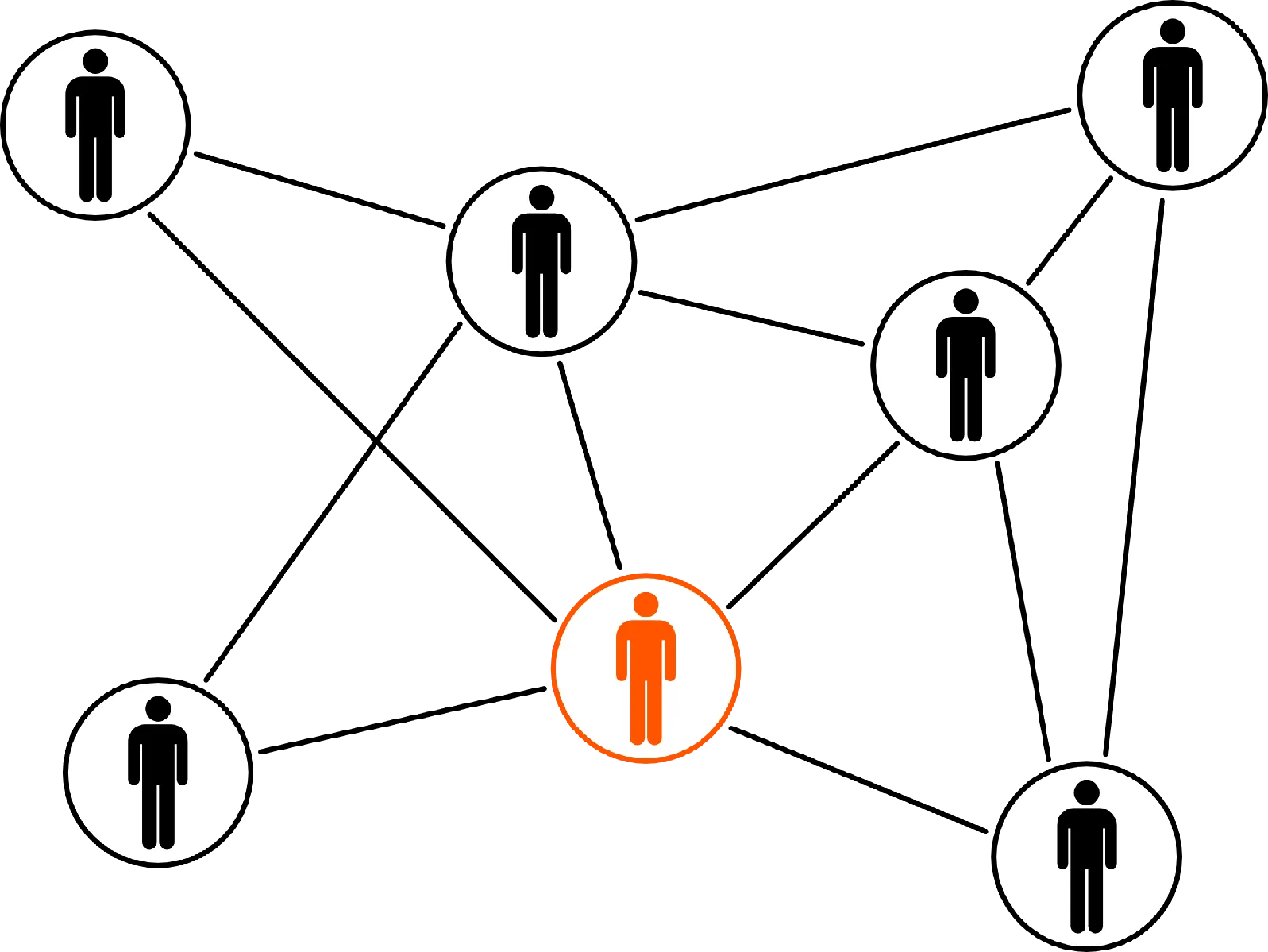This introvert test will help you answer the question: Am I an introvert or extrovert? Why does it matter you may ask?
Introverts and extroverts are very different in how they process information, gain or lose energy, and handle external stimulation. Knowing if you’re an introvert or extrovert can have a major impact on how successful you are professionally and what kind of career suits your personality.
As you take the introvert test below, don’t overthink your answers, just go with your gut reaction. No one is a pure introvert or pure extrovert but the overall trend will play out across all the questions.
What do your Introvert or Extrovert Test Results Mean?
One definition between introverts and extroverts that resonated with me is around where we get our energy from. Extroverts gain energy by interacting with people, while introverts need to recharge through solitude or reflection. An introvert can have a great time socializing but still feel drained afterwards and need alone time.
A second definition is how introverts and extroverts differ in how much outside stimulation they are comfortable with. Introverts function better with a lower amount of people, noise, tasks or distractions. An introvert typically prefers to concentrate deeply on one thing, while extroverts are generally much better at multitasking.
Simply knowing you lose or gain energy through your interactions with people or the environment around you is a huge advantage. Once you can embrace and leverage your strengths, while minimizing your weaknesses, you can go to the next level.
What is an Introvert?
One definition of introversion is that introverts gain or recharge energy through solitude or reflection. A second aspect is that introverts are more sensitive to outside stimulation (people, tasks, noise). Third, an introvert’s brain physically processes information more slowly than extroverts.
What does this mean for you professionally?
Introverts function better with a lower amount of people, noise, tasks or distractions. An introvert typically prefers to concentrate deeply on one thing for longer periods, rather than multitasking.
A career and work culture that allows for longer periods of focus on deeper work are going to suit an introvert.
One stereotype about introverts is that we are anti-social or don’t like people. This is incorrect because an introvert can have a great time socializing but still feel drained afterwards.
The crux of that matter is that we gain or recharge energy through solitude or reflection. Also, because introverts are more sensitive to stimulation, we typically prefer to interact one-on-one or in small groups.
Introverted brains are wired slightly differently than extroverts. It has been shown that information takes a longer path to be processed for introverts than it does for an extrovert.
The drawback is that you may miss the opportunity to contribute in the moment in a meeting or conversation but the positive is that introverts often come up with deeper insights or analysis, once we have processed it all.
What is an Extrovert?
Extroverts gain energy by interacting with people. This is why extroverts are often assumed to be natural networkers or good salespeople. It is also why an extrovert will struggle in a job where they are isolated from social interaction.
Extroverts differ in how much outside stimulation they are comfortable with. Studies have shown that extroverts are far less affected by noise or other stimulation that would drain an introvert. In the open office example, an extrovert would handle distractions more easily and likely be more comfortable with multitasking.
When processing information, extroverts tend to think out loud. They will voice their thoughts to others as their way of sorting through the information and gaining feedback. If you are a hardcore introvert who thinks everything through before speaking this may seem alien to you, but understanding that it is a different method of processing may help you in professional situations.
What is an Ambivert?
The term ambivert refers to people who sit in the centre of the introvert vs extrovert scale. A large portion of the population may be categorized as ambiverts.
Although ambiverts are defined as being in the middle, it doesn’t mean they have a perfect 50% balance of the different introvert-extrovert characteristics and strengths. For this reason, it is important for ambiverts to understand the differences between introverts and extroverts and recognize where they sit in each.
This balance that ambiverts possess can be an advantage at work. For example, being able to balance when to talk and when to listen can be an advantage in leadership roles, or in sales and customer service situations.
Note: My software did not allow me to provide an ambivert result in the introvert or extrovert test. If you struggled to choose one option on several answers you may be an ambivert and need to recognize where you sit in different areas of your personality.
The Strengths and Weaknesses of Introverts
Introvert Strengths: Introverts develop deeper relationships
Introverted people tend to develop fewer relationships than extroverts but on a deeper level.
You are never going to be that person that knows everyone (I like to think of them as the “Mayor”) and it will exhaust and frustrate you to try. What you can do is use this strength to foster and focus on fewer but more important relationships.
Introvert Strengths: Introverts are good listeners
We are naturally great listeners. Guess what? Whether you admit it or not, most people’s favourite subject is themselves!
Have you ever met someone and come away thinking what a great conversationalist they were? There’s a good chance you thought that because they were able to get you to talk about what was important to you and you felt heard.
There’s a good chance that person was an introvert.
Introvert Strengths: Introverts have deep focus
The preference to focus intently on one project or task at a time means introverts are great at doing deep work on a topic.
Think about some of the famous introverts like Albert Einstein or Bill Gates who did big things through intense focus. While an extrovert may become distracted or depleted without outside stimulation, introverts can excel with a single project and the time to focus deeply on it.
We live in a busy, distracted time and that makes the ability to focus all the more valuable in today’s world.
Introvert Weaknesses: Introverts don’t speak up
Science tells us that the wiring in an introvert’s brain means it simply takes us longer to process information.
If you are in a group environment, such as a busy meeting, this can mean that you often miss the chance to be heard. A group environment may not be the best way to be heard. Can you facilitate one-on-one time with those you need to be heard by?
Introvert Weaknesses: Introverts don’t like the spotlight
Shying away from the spotlight is perfectly fine but it can have the downside of meaning you’re overlooked for that promotion or social invite.
You have the choice on whether you will stretch yourself and step into the spotlight at important times. Many successful introvert leaders have been able to step into the spotlight because something larger is driving them.
Alternatively, you can choose to use your relationship building and focus strengths to find other ways to stand out in your own way.
Introvert Weaknesses: Introverts can be seen reserved or aloof
Our tendency to take a back seat in social situations and share less with new people can be interpreted as being aloof or distant by more extroverted people.
If I had a dollar for every time I’ve been told “You were so quiet at first. I thought you were kind of stuck up.”
Again, our strengths of listening and relationship building can be combined with a little stretching to help people see the real you.
How to Succeed in Sales if You Are an Introvert
The stereotype that introverts are poor or unnatural at sales has been debunked. Studies show that extroverts are not any better than introverts at selling.
It is actually the people who can blend the strengths of introverts and extroverts (ambiverts) that are the top performing salespeople. The challenge is to use your strengths AND stretch a little on your weaknesses.
Technology and the way people want to buy today means the cold-calling, door-knocking salesperson is no longer relevant. Here’s the test: how often do you answer the phone when it is a number you don’t recognize?
People don’t want to be bothered or sold to. You don’t have to be THAT kind of salesperson to succeed.
In this age of information overload, where you can Google any answer you need, people need help sorting through the overwhelm of information. You can use your strengths of listening, focus and relationship building to become that trusted guide for them.
Read more about Sales for Introverts.
How to Network as an Introvert
Is networking necessary? Yes, it forms a large part of the job search process and most sales strategies.
Is networking evil? No, but the way you have been taught how to do it definitely sucked. Networking doesn’t need to be a harrowing, energy-sapping experience.
One of the biggest reasons introverts struggle with networking is because we have been taught poorly. Most networking advice is aimed at extroverts and the expectation is that introverts need to toughen up and act extroverted to succeed.
Introverts have the tools to be great networkers – if we do it our way. Changing technologies are making it easier than ever to network effectively and in a way that fits our nature.
Read more in How to Network as an Introvert.





